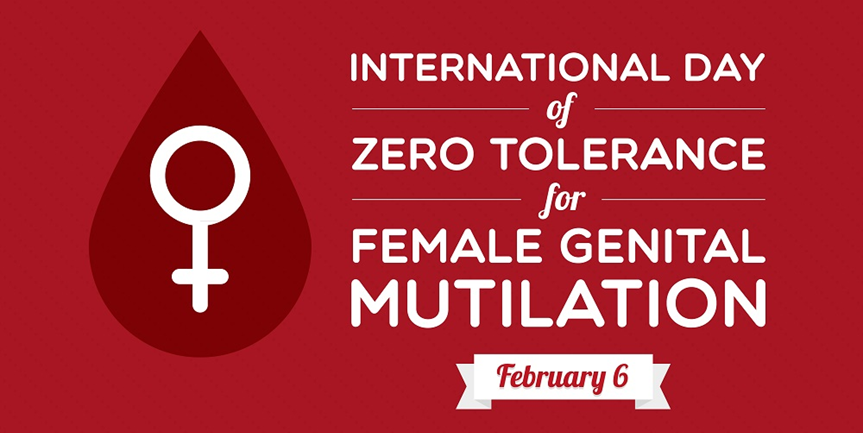Description

Copyright infringement not intended
Picture Courtesy: https://epthinktank.eu/2019/02/06/zero-tolerance-for-female-genital-mutilation/
Context: The joint statement issued by several United Nations agencies on the International Day of Zero Tolerance for Female Genital Mutilation on 6th February highlights the ongoing challenges and risks associated with this harmful practice.
Key points from the statement
Global Concern and Migration Impact
- Female genital mutilation (FGM) is a global concern, with at least 200 million girls and women worldwide having undergone the practice. It is concentrated in Western, Eastern, and North-Eastern Africa, as well as some Middle Eastern and Asian countries.
- Migration has increased the number of girls and women in Europe, Australia, and North America who have undergone or are at risk of undergoing FGM.
Current Risk and Global Impact
- In 2024, nearly 4.4 million girls will be at risk of FGM, equating to more than 12,000 cases every day. This underscores the urgent need for continued efforts to address and prevent FGM globally.
Commitment to Prevention and Response
- The joint statement reiterates the commitment of United Nations agencies to prevent and respond to FGM, aligning with various international agreements and frameworks, including the Beijing Declaration, International Conference on Population and Development, Generation Equality, and others.
- The statement calls for continued global collaboration and action to eliminate FGM, protect the rights and health of women and girls, and create a future free from this harmful practice.
|
The Beijing Declaration, officially known as the Beijing Declaration and Platform for Action, is a groundbreaking document adopted at the Fourth World Conference on Women held in Beijing in 1995. It is considered a landmark achievement in the fight for gender equality and women's rights worldwide.
|
Violations of Rights and Health Risks
- FGM is highlighted as a violation of the rights of women and girls, endangering their physical and mental health. It increases the risk of severe pain, bleeding, infections, and long-term health complications, impacting the ability to live healthy and fulfilling lives.
Role of Survivors' Voices
- The statement emphasizes the importance of amplifying the voices of survivors to raise awareness and inspire collective action. It calls for promoting the power and autonomy of survivors by ensuring their active role in prevention and response interventions.
Progress and Remaining Challenges
- There has been some progress in reducing the prevalence of FGM over the last three decades. In 31 countries with prevalence data, approximately one in every three girls aged 15 to 19 today has undergone the procedure, compared to one in every two in the 1990s.
- However, progress has been uneven, and the rate of decline is insufficient to keep up with increasing population growth. Without sustained efforts, the number of girls and women undergoing FGM may rise significantly in the next 15 years.

Female Genital Mutilation (FGM)
- Female genital mutilation (FGM) is a harmful practice that involves the partial or total removal of the external female genitalia for non-medical reasons.
- It is a violation of the human rights, health and dignity of girls and women, and can cause serious physical and psychological consequences.
- FGM is mostly performed on girls between infancy and age 15 and is rooted in social and gender norms that aim to control female sexuality and preserve chastity, purity and fidelity.
- According to the World Health Organization (WHO), more than 200 million girls and women alive today have been subjected to FGM in 30 countries in Africa, the Middle East and Asia where FGM is concentrated. However, FGM is also practised in some countries in Latin America, Europe, North America, Australia and New Zealand among immigrant communities.
- The COVID-19 pandemic has also increased the risk of FGM for many girls due to school closures, economic hardships, social isolation and reduced access to health and protection services.
|
The International Day of Zero Tolerance for Female Genital Mutilation (ZTFGM)
●The Day has been observed every year on February 6th since 2003 to raise awareness and mobilize action to end this practice.
●The day was initiated by the Inter-African Committee on Traditional Practices Affecting the Health of Women and Children (IAC) and was later adopted by the UN General Assembly as part of its resolution to eliminate FGM.
●The day provides an opportunity for governments, civil society, media, health professionals, religious leaders, survivors and activists to join forces and reaffirm their commitment to end FGM by 2030, as part of the Sustainable Development Goals (SDGs).
●The theme for ZTFGM 2024 is "Her Voice. Her Future". The theme recognizes the vital role that survivors of FGM play in challenging the social norms that perpetuate FGM and advocating for the rights and well-being of girls and women.
|
The UNFPA-UNICEF Joint Programme on the Elimination of Female Genital Mutilation
- The programme works in 17 countries in Africa and the Middle East with a high prevalence of FGM and supports regional and global initiatives to end FGM.
- The programme adopts a human rights-based and culturally sensitive approach that engages multiple stakeholders, such as governments, communities, religious leaders, media, health workers, youth and women's groups.
- The programme supports the provision of comprehensive services for girls and women who have undergone or are at risk of FGM, such as health care, psychosocial support, legal aid and education.
Conclusion
- Female Genital Mutilation remains a global challenge that requires a multidimensional and culturally sensitive approach. Ongoing efforts by governments, NGOs, and international bodies are essential to creating a world where the rights and well-being of women are respected and protected.
|
PRACTICE QUESTION
Q. Beyond legal frameworks, what are the deeply entrenched social and cultural norms that contribute to gender inequality in India, and how can these be addressed effectively without causing backlash or further marginalizing vulnerable groups?
|
















